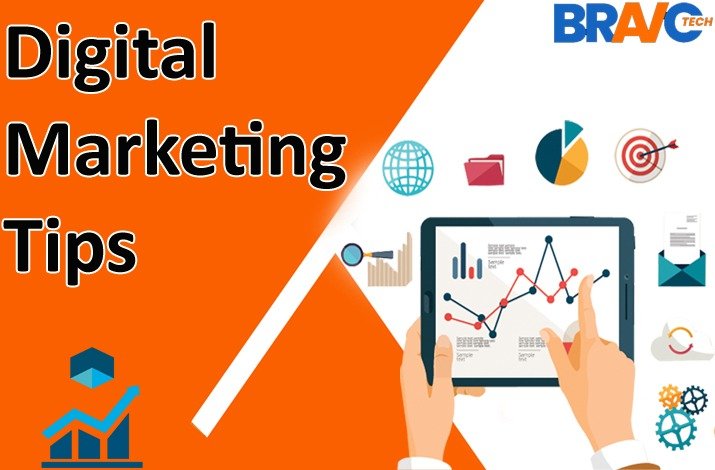10 Best Ways to Track Your Online Marketing Activities

Tracking and analyzing online marketing activities are crucial for businesses to stay competitive and maximize their online presence. Companies can gain valuable insights into the efficacy of their marketing strategies and make informed decisions to improve their online performance by monitoring key metrics and data. To help you navigate the vast landscape of online marketing tracking, we have assembled a list of the 10 best ways to track your online marketing activities.
What Does It Mean to Track Marketing Activities?
Tracking marketing activities means monitoring and gathering data on its performance and effectiveness. It involves closely observing and measuring various metrics and indicators related to the marketing campaign or industry. Businesses can assess the impact of their strategies, evaluate their return on investment (ROI), and make data-driven decisions to optimize future efforts by tracking marketing activities.
Ways to Track Your Online Marketing Activities
However your business, there are several ways to track your online marketing activities. There are call tracking, social media targeting, and conversion tracking, to name a few. However, with so many available options, knowing which tools are the best can take time and effort. Below are the 10 best ways to track your online marketing activities.
Website Analytics
Website analytics are online tools that monitor the number of visitors to your client’s or company’s website. Several analytics tools collect more complex data, like the time visitors stay on your site, the link that brought a visitor to your site and whether they engaged with particular aspects of or pages on your site. The information you collect can support you in developing an expert strategy for your marketing efforts. Understanding your visitors’ behaviour will support you in creating a more personalized website experience.
Customer Relationship Management Platforms
CRM platforms enhance sales and marketing by tracking customer behaviour on your website, revealing preferences and buying patterns. They enable personalized customer experience beyond a mere contact database. CRM systems empower efficient customer service with features like real-time technician dispatch and social media monitoring. Effective communication coordination is a key CRM function facilitated by automated workflows and comprehensive tracking. That enables identifying top leads, prioritizing contacts, and optimizing customer outreach.

Tracking URLs
Tracking URLs is the most effective way to analyze and monitor marketing campaigns. It supports that online marketers should utilize their increased conversions and marketing budgets better. Understanding how to create a tracking URL to monitor your online marketing efforts is important. That is a unique identifier added to a URL, providing information about the source of a visitor. You can determine the most effective channels driving traffic to your website and evaluate the performance of your content by tracking URLs. To obtain a tracking URL, you must be aware of your campaign’s name, as it influences the choice of your traffic analytics tool.
Shopify Analytics
Shopify Analytics simplifies the management of an online store by tracking marketing activities, enhancing sales, and identifying target markets. This built-in reporting dashboard enables monitoring performance data and facilitates the creation of insightful reports for business improvement. Segmented reports reveal customer behavior on the website, highlighting effective strategies and areas needing attention. With Shopify, you can analyze the customer journey, optimize conversion rates, and track page visits and session duration metrics. These valuable metrics inform data-driven decision-making.
Conversion Tracking
Utilizing conversion tracking in advertising campaigns enables the evaluation of ad effectiveness and optimization of ad spend. Whether email marketing campaigns or online advertisements, conversion tracking reveals strengths and weaknesses, guiding campaign improvements. Selecting an appropriate analytics tool is crucial for successful conversion tracking. Clearly defining measurable goals and implementing tracking methods, like tracking pixels or website code, are necessary steps. For instance, Google Analytics offers a conversion pixel that can be placed on the designated conversion page for tracking purposes.
Social Media Targeting
The right social media tools can revolutionize your business by monitoring your online presence and fostering customer engagement. Tools like SocialPilot streamline scheduling across multiple platforms. To maximize effectiveness, focus on social media platforms where your target audience is most active, as adults spend an average of two and a half hours daily on these sites. Directing your marketing efforts towards these platforms increases the likelihood of success. Top social media sites offer comprehensive metrics such as likes, shares, and comments to measure performance.
Call Tracking
Call tracking enhances marketing ROI by providing a comprehensive understanding of customer behavior, enabling the identification of effective marketing channels and optimizing ad spend. Utilizing the right tools empowers data-driven decision-making regarding online traffic. Smarter campaign optimization decisions can be made by identifying customer-attracting keywords. An ideal reporting tool highlights metrics like call duration, customer demographics, and specific call details. For users of Google AdWords or Bing Ads, call tracking offers insights into campaign performance, including which keywords generate calls and drive conversions.
Social Mention
Tracking social mentions is a valuable strategy for optimizing your marketing efforts. Tools like Social Mention enable real-time monitoring of online conversations, providing deeper insights into your target audience’s opinions and needs. This information can enhance your product or service and attract more customers. Engaging with social mentions is crucial, as brands risk damaging their reputation by not addressing customer concerns on social media. These tools also help develop realistic buyer personas and identify positive, neutral, or negative posts. Features like email alerts and lead identification facilitate proactive engagement and highlight opportunities from user-generated content.
Cost Per Acquisition (CPA)
Selecting the appropriate cost per acquisition (CPA) is crucial for an effective customer acquisition strategy. CPAs serve as a useful metric to evaluate marketing performance. The optimal CPA can vary based on product, industry, and pricing factors. A low CPA might indicate insufficient investment in ad campaigns, while a high CPA could imply overpayment for acquiring new customers. Tracking CPA alongside metrics like conversion rate and customer lifetime value reveals the effectiveness of different marketing channels. For e-commerce campaigns, considering the average order value provides insights into the cost of acquiring new customers.
Return on Ad Spend (ROAS)
Measuring return on ad spend (ROAS) is vital for any online business model to assess advertising effectiveness. ROAS indicates if ads are successful and provide insights for improvement. It is calculated by dividing revenue from ad campaigns and marketing activities by the cost of those campaigns. Higher ROAS signifies better ROI. Monitoring average click-through rate (CTR) and conversion rate helps track ad campaign ROI. While a high CTR suggests potential revenue, a low conversion rate indicates ineffective or irrelevant ads. Calculating ROI involves understanding ad costs, bids, labor expenses, and creative assets.
Conclusion
Tracking your online marketing activities is crucial for maximizing your efforts and achieving success in the digital landscape. You can gain valuable insights, measure your performance, and make data-driven decisions to optimize your online marketing campaigns. These methods include setting clear goals and objectives, utilizing web analytics tools, tracking conversions, monitoring social media metrics, employing UTM parameters, conducting A/B testing, leveraging heatmaps and click tracking, using call tracking, implementing email tracking, and staying updated on industry trends. Remember, consistent tracking and analysis will provide actionable information, helping you refine your strategies, target your audience effectively, and ultimately drive better results for your online marketing efforts.






